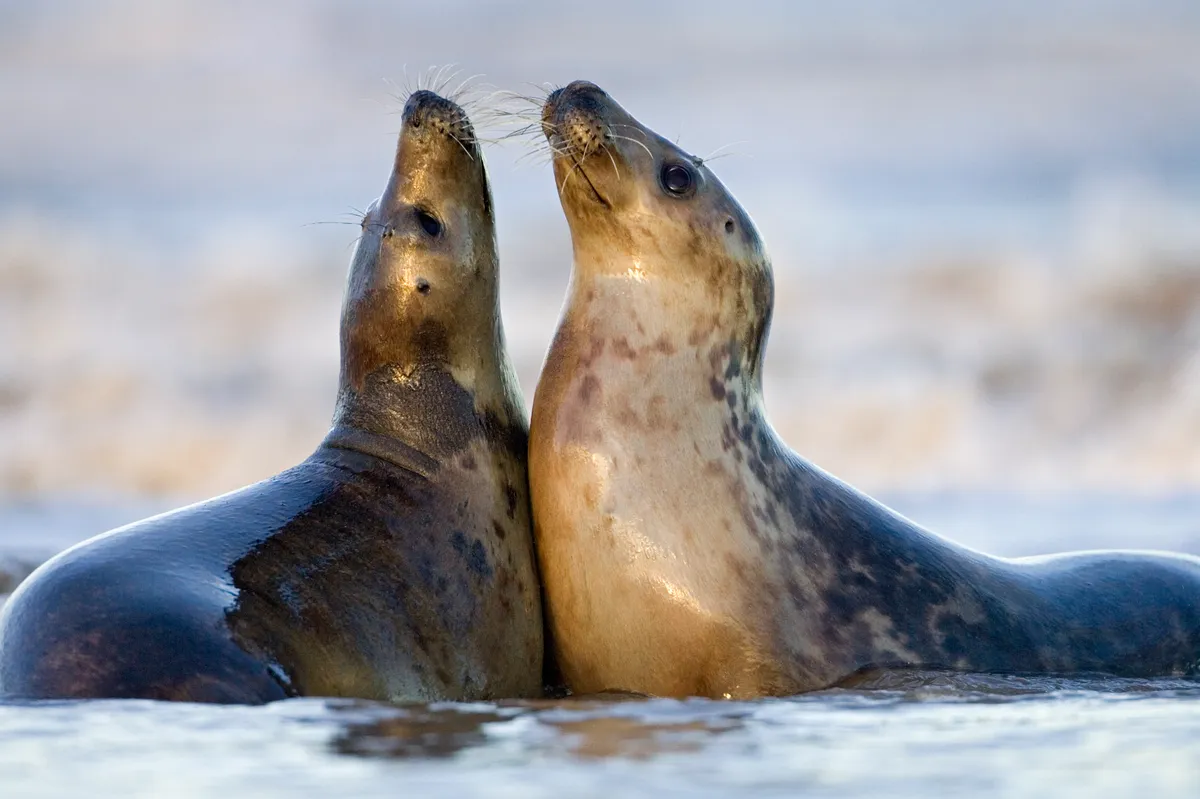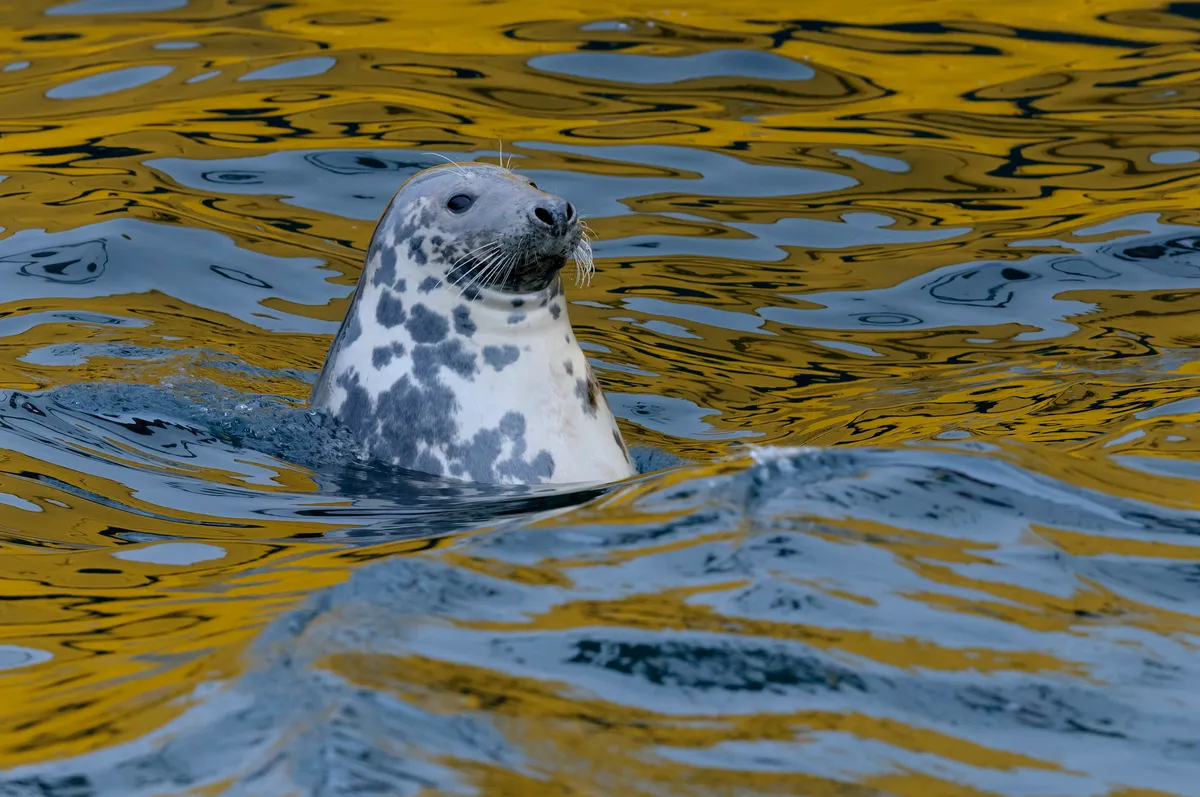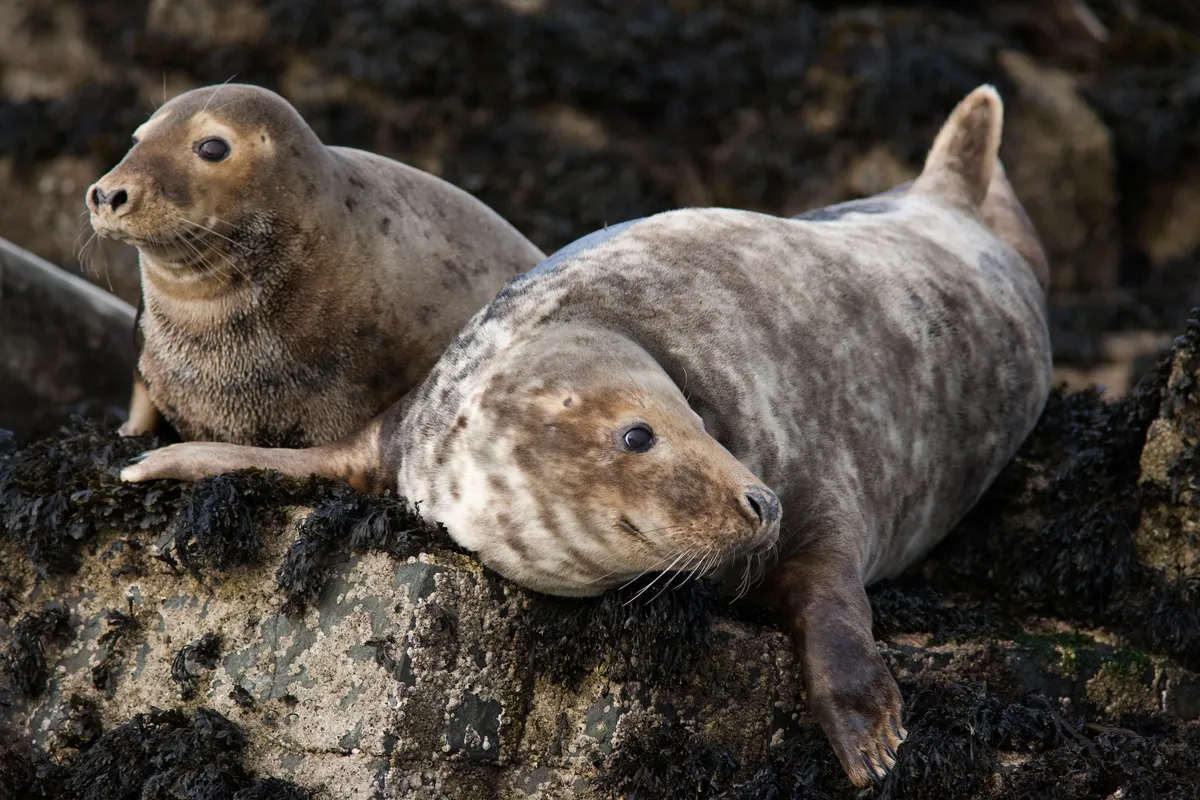Why are you championing the grey seal?
Some of my very best animal encounters have been with inquisitive grey seals here in UK waters. I find them completely mesmerising and so playful.
Every time I have an interaction with them while scuba diving, I feel so lucky that they want to approach and spend time with me in the water, and I never want those dives to end.

Unlike us, they are well adapted for life in the sea, with torpedo-shaped bodies, large eyes and highly sensitive whiskers, which all enable them to hunt efficiently in the murky depths.
Can you tell us about your first dive with grey seals?
I was filming in the Farne Islands for the very first series of BBC Two’s Coast, and I had just been told about how ‘full on’ a grey seal encounter could be, so I was mentally preparing myself for it. After a few minutes in the water, one solitary seal just glided past, gave me a cursory glance, and then disappeared.
I was left wondering whether that was my ‘encounter’, but within minutes the rest of the group crept up behind me and started tugging at my fins! It was as if that seal had been a ‘scout’ sent to check us out before the rest came in to play.
I feel so lucky that they want to approach and spend time with me in the water.

What are your favourite grey seal facts?
Pups are born white, which is not great camouflage on sand or pebbles, but it is a relic from the ice age when the pinnipeds would have been born on snow!
Also, grey seals are one of the rarest seal species in the world, with between 120,000–200,000 in Britain, representing 40 per cent of the world’s population.
Where can grey seals be found in the UK?
All around. Hotspots are in Cornwall, the Isles of Scilly, Pembrokeshire, Norfolk, Orkney and the Farne Islands. The pupping season starts as early as August in Cornwall, then September to October in Wales, and November to December in Scotland and down the east coast of England.
There are plenty of great places to see them hauled out on beaches, but people need to take care not to disturb mothers with new pups and to keep dogs on a lead. Pups often get separated if disturbed, which can lead to starvation.

Are there threats to grey seals?
They can come into conflict with fish-farm owners, in some areas, because the farms are an easy source of food for them.
Grey seals are also affected by marine plastic and other pollution. Because they are so inquisitive, these mammals will investigate unusual items floating in the water and can get plastic or ‘ghost fishing gear’ [lost or abandoned fishing equipment] wrapped around their necks or flippers, which stops them from swimming and feeding properly – each year, there are many cases of seals being rescued. Plastic has also been found in their faeces, passed up through the food chain from the fish that they consume.
The expert view
“Research indicates that man-made chemicals accumulate in grey seals and are then passed onto their suckling pups. This can affect the pups’ ability to deposit blubber, and is likely to impact reproduction and immunity in this species. Grey seals exhibit fascinating behaviour, including submerged mating, bulls using sound to scare off rivals and balletic courtship.”
Ben Burville is a diver and visiting researcher at Newcastle University.
Miranda Krestovnikoff is a TV presenter and author of The Sea: Exploring our Blue Planet.
This article originally appeared in BBC Wildlife. Take a look inside the current issue and find out how to subscribe.
